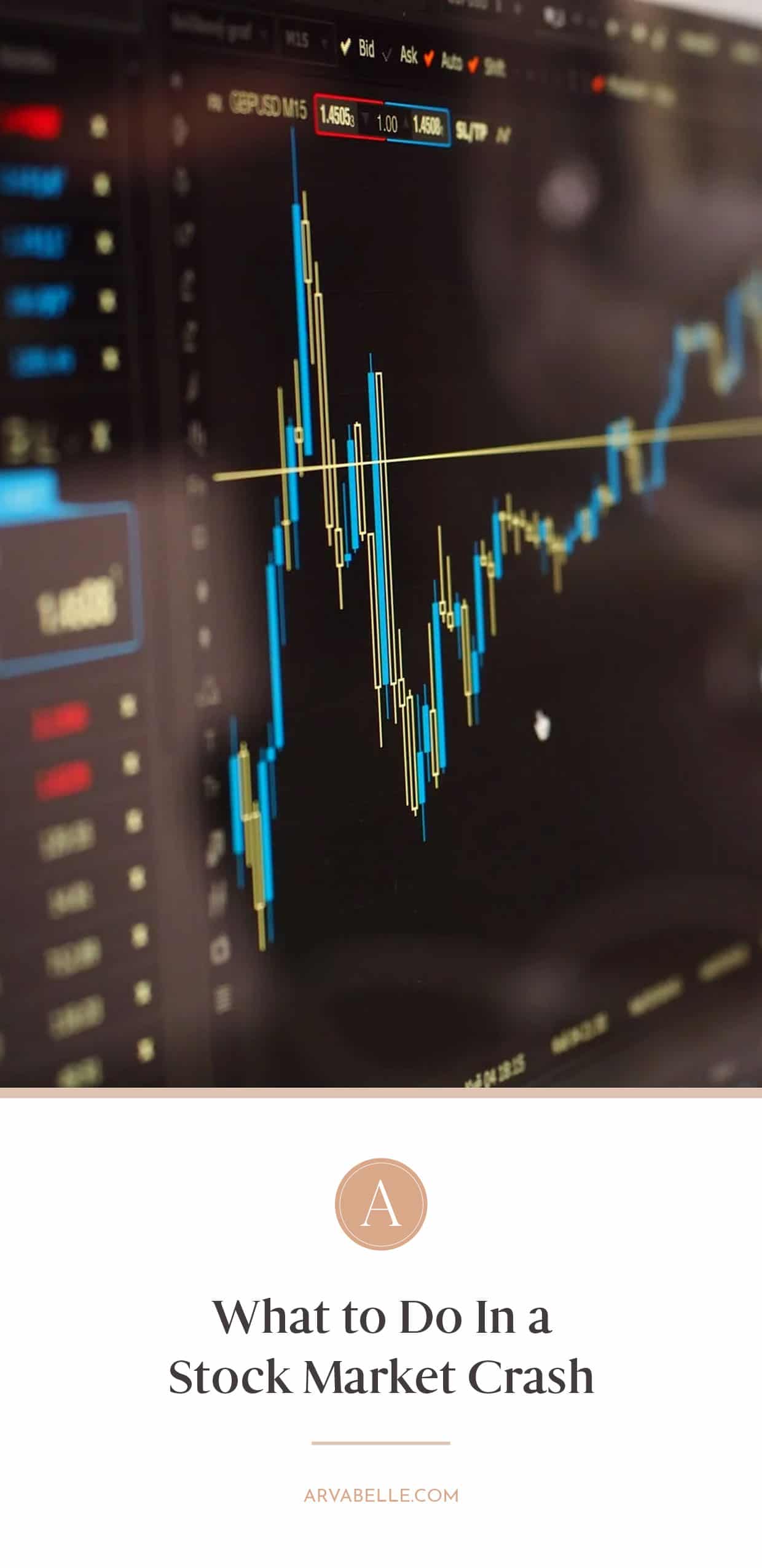
The last few weeks been interesting to say the least. The dow has dropped quite significantly in the last few days, and this morning especially, media outlets are in absolute hysteria and it’s a pretty interesting thing to watch this unfold.
There are a few things that you should and shouldn’t do during a market crash, so that’s what we’re going to talk about today.
Don't Obsessively Listen to the Media
It is of course important to know what’s going on, but there’s a difference between being informed and being obsessed.
For every possible scenario you can think of, you’re going to find articles, you’re going to find video clips. Probably on CNBC and Bloomberg, you’re going to find articles for anything and everything.
When it comes to the market, media outlets like to get you hyped up and like to get the hysteria going with what I like to call buy or die. Right? They’re either going to tell you this is the best time to invest ever, or they’re going to make it seem like it’s doomsday, which is the direction it currently looks like they’re going.
Usually they’re smart enough to wait a day before they flip positions, but in cases like this week where we’re seeing the market drop at a rate we haven’t seen in a very long time. I can guarantee you that today alone they are probably going to publish articles from like 4 different positions –
“you should buy, you should sell, you should transfer everything into bonds, you should move to Canada.”
So the best thing to do is to find out what’s happening. You know, if you want to buy into something, you can research whatever that is, but then after that, just shut it off. If you know that it’s going to freak you out to hear all of these conflicting opinions, and you think it’s going to influence the decisions that you make with your investments, shut off the news, shut off the YouTube videos, and like it’ll all be okay.
So that’s more short term. Longer term –
Don’t Change What's Working
Longer term, if the markets continue going down, I can’t tell you what to do, but I can tell you what I’m going to do – and that’s not really change anything. I’m still going to continue contributing to my accounts on a regular basis, I’m going to continue to hold the positions that I have. If the markets go further down, I’m going to do the same thing, and if the markets start going back up, I’m going to do the same thing.
It’s not super exciting or dramatic, but it doesn’t need to be.
For me what the market does in the next 5 days, 5 months, or 5 years, doesn’t matter in the big picture of me continuing to invest until I’m like 70 years old, you know?
Consider it a Sale
The thing is if you buy when the markets are down, you’re essentially buying stocks on sale. You know the whole buy low, sell high thing? This would be the buy low part of that equation.
Now this doesn’t mean go and dump 100% of your cash into the stock market, that’s not what that means.
But if there are stocks that you want to get into, now would be a good time to research those, and to see if they would be worth buying for you.
With dividend stocks, if you buy when the price is lower, your dividend yield is technically going to be higher because dividends usually won’t change unless something actually changes within the company. So if you’re a dividend investor, now might be a good time to consider adding to your positions.
And for other stocks, the potential for growth is higher, because you are buying at that dip, instead of at the top. So a relevant example is Tesla. Right? Tons of people are kicking themselves because they didn’t buy into TSLA back in May or August of last year. But if you bought somewhere in that time, and you were able to sell anywhere along this upturn, you’re probably sitting on some pretty good profits right now.
And that’s what happens in market downturns. They say that millionaires and billionaires are made during recessions and depressions, and that’s why. Buying when stock prices are low are obviously going to get you a much higher return on your initial investment.
The market it cyclical, and historically, yes, after a long bull market come a bear market. But after the bear market, comes another bull market. We see that in real estate too. There’s a natural cycle to it.
So that’s just something to consider, is this a dip in that cycle, and is this a good time for me, personally, to buy? And that answer is going to be different for different people.
It’s good to prepare for the worst.
And not in a doomsday-our-entire-world-is-collapsing type of way, but just being prepared in a realistic manner for what a market downturn could mean. Because in a longer term market downturn, will we see job cuts? It’s likely. Could you be unemployed? It’s a possibility. But that’s a possibility regardless of what the market is doing.
That’s why it’s really important to focus on your job skills, and your soft skills as well that make you valuable to a company. You want to be as indispensable as possible to them so that during job cuts they’re like, what about Sally? Oh no we HAVE to keep Sally. So any skills or knowledge that make you valuable to your company, or to your industry, it’s a good time to hone in on those and really build up those skills that make you an essential part of their business.
It’s also a time to start thinking about expanding and building out multiple streams of income from different places so that you aren’t reliant on 100% of your income coming from your day job. So maybe that’s having side hustles, maybe it’s starting your own business, or getting passive income from real estate or dividends. It doesn’t necessarily matter which of those you chose, it’s just important to start looking at how you can be more diversified in where your money is coming from. That way if one of those streams of income goes away, you still have some money coming in, and you still have a little bit of a sense of security
It’s important to prepare yourself financially, again, regardless of what the market is doing. Which means having an emergency fund set up, usually 3-6 months would be ideal so that you can still pay the bills if you have a period where you are switching jobs. If you have a little bit of a cushion, it’s going to be super helpful in the event that you actually need to use it for something.
Preparing yourself financially could also mean trying to get your debt under control, so that you don’t have crazy loan payments on top of the essentials bills that you already have to pay. Right? It’s a good idea to start paying off high interest loans you have and start minimizing the amount of money that HAS to come out of your account every month.
Start being more mindful of your spending habits.
So a market downturn is not the time that you want to be spending all your money on discretionary items
#1 because of that emergency fund we talked about – you want to be saving some money in that but also
#2 – having some cash available is going to give you more freedom to take advantage of opportunities that you may not otherwise have. If you see a stock that you like and the price has dropped, or maybe if real estate prices start moving, it’s good to have some cash available so that that opens up the option for you to buy into those things, if you think it’s a good time to do so.
So really the main takeaway is that we know that the stock market is cyclical, and that’s really the main thing to remember.
Even though it’s down right now, if it follows historical patterns, and it follows the cycle, it will pop back up eventually and recover. It may happen immediately, it may take years, there’s no way to know. All you can do is do your best to prepare yourself, and to not freak out.

